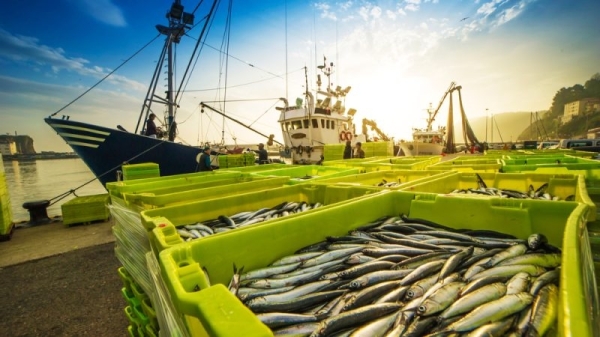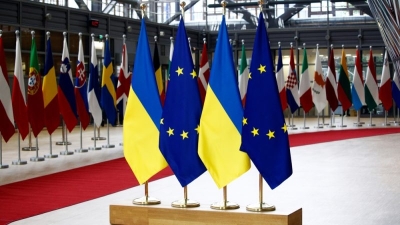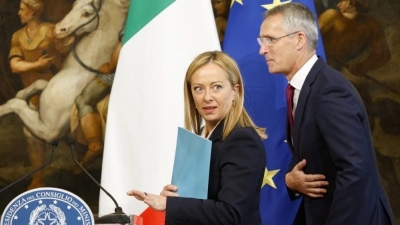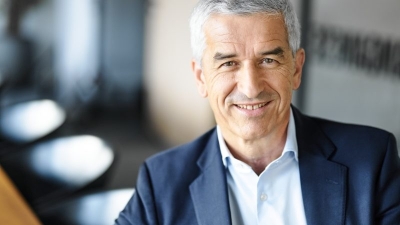The European fishing industry wants to join farmers’ protests

The representative of Europe’s fishing industry says they share EU farmers’ demands and support the joint demonstrations organised in France and Spain against what they call the ‘Brussels diktat’.
“Europêche fully shares the frustration expressed by farmers over the unbalanced and unworkable European policies that are strangling our businesses across the EU,” Daniel Voces de Onaíndi, Director General of Europêche, the main lobby for industrial fishing in Europe, told Euractiv.
On Saturday 9 March, farmers and fishermen held a joint demonstration in the north of France, in Boulogne sur mer, France’s leading fishing port.
Organised by la Coordination rurale, the farming union most hostile to the French government, and from the Syndicat des chefs d’entreprises de la pêche, the unprecedented operation brought together 150 tractors and several dozen fishermen. Their slogan: stop the “Brussels diktat”.
Agriculture and fisheries are “two parallel worlds that Brussels is sacrificing with its dictatorship that no longer protects its people but crucifies them,” announced Coordination rurale in a press release.
The demonstrators are demanding an end to environmental standards and European bureaucracy, and an increase in incomes.
For similar reasons, the two sectors had already held a joint demonstration in front of the European Commission’s representative office in Madrid, Spain, on 26 February 2024.
Too many European standards
Europêche believes that European fishermen and farmers have “shared concerns” about the excessive European regulations imposed by both the Common Agricultural Policy (CAP) and the Common Fisheries Policy (CFP).
The emblematic example is the marine action plan, announced on 21 February by the European Commission to “protect and restore marine ecosystems for sustainable and resilient fisheries.”
The plan suggests member states ban bottom fishing – dredges, seines, trawls, etc. – in marine protected areas (MPAs) – in marine protected areas (MPAs) by 2030, to protect the seabed and ecosystems, raising criticism in the sector.
In the same way that agricultural union representatives such as Copa and Cogeca blame the Farm to Fork strategy for causing a fall in agricultural yields (around 15%), the fishing industry is warning of a 25% drop in seafood production if the Commission’s plan is implemented.

Third countries urged to adopt the EU fisheries digital control system
Fisheries ministers reiterated the importance of protecting the EU from imports of illegally caught fish, calling on third countries to adopt the digital catch certification system, which will become compulsory for EU national authorities in 2026.
Imports of agricultural products into the EU are increasing, the fishing industry warns, underlining that 70% of the seafood consumed in Europe is imported from third countries. Europêche believes that both sectors need to regain their competitiveness in the face of international competition.
For their part, Spanish fishermen point the finger against fish imports from Morocco, while the renewal of the free trade agreement between the EU and the Kingdom, temporarily blocked for legal reasons, could resume in 2024. This is an issue at the heart of the farmers’ demands.
“Four years ago, we still had 80 fishing boats under 25 metres in Boulogne-sur-Mer, now there are just 15″ he added”. “I think it’s going to be the same for agriculture. It’s going to be the same with family farming, it’s going to disappear because of free trade,” he concluded.
Easing up on the Green Deal and the CFP
In addition to standards and free trade, fishermen are joining farmers in their desire to see their pay rise and fuel taxes fall. In addition, there are problems specific to the fishing industry, such as the consequences of Brexit, which have deprived professionals of large fishing zones in Europe. A quarter of French catches were taken in British waters.
In recent weeks, simplification measures and derogations from the CAP have been granted by the Commission to farmers. The European fishing industry is also calling on the EU authorities “to rebalance the different objectives of the EU Green Deal and the EU Common Fisheries Policy by strengthening the socio-economic and food security dimensions,” stated Europêche .
This is essentially what MEPs proposed in an own-initiative report on 18 January, calling for a new direction from the Commission and the CFP, focusing on fleet competitiveness and the abandonment of certain environmental bans.
The report also calls on the next Commission to appoint a Commissioner dedicated exclusively to fisheries, as the current Commissioner also holds the Environment portfolio.

EU Parliament calls for looser environmental rules in Common Fisheries Policy reform
The European Parliament voted on Thursday (18 January) in favour of two own-initiative reports on EU fisheries pushed by the conservative EPP, which drop some environmental bans and focus on fleet competitiveness, effectively calling for a reform of the bloc’s Common Fisheries Policy.

EU Parliament calls for looser environmental rules in Common Fisheries Policy reform
The European Parliament voted on Thursday (18 January) in favour of two own-initiative reports on EU fisheries pushed by the conservative EPP, which drop some environmental bans and focus on fleet competitiveness, effectively calling for a reform of the bloc’s Common Fisheries Policy.
Read more with Euractiv




